Hair transplant surgery has become a popular and effective solution for those experiencing hair loss.
This comprehensive guide answers frequently asked questions about hair transplants, covering everything from the procedure and recovery to costs and expected results.
Whether you’re considering a hair transplant or seeking more information, this article will help you understand the ins and outs of hair restoration surgery.
Table of content
What is a Hair Transplant?
Definition and Overview
A hair transplant is a surgical procedure to address hair loss by moving hair follicles from one part of the body (donor site) to the balding or thinning areas (recipient site). The goal is to achieve natural hair growth in areas affected by hair loss.
Types of Hair Transplants
There are two main types of hair transplant techniques:
- Follicular Unit Transplantation (FUT) involves removing a strip of scalp from the donor area and dissecting it into individual hair follicles for transplantation.
- Follicular Unit Extraction (FUE): This involves extracting individual hair follicles directly from the donor area and transplanting them to the recipient site.
How Does Hair Transplant Surgery Work?
The Procedure
Hair transplant surgery involves several key steps:
- Initial Consultation: During the initial consultation, the hair transplant surgeon evaluates your hair loss pattern, discusses your expectations, and plans the surgery.
- Preparation: On the day of the procedure, the surgeon will clean and numb the donor and recipient areas with local anesthesia.
- Harvesting Hair Follicles: In FUT, a strip of the scalp is removed, while in FUE, individual follicles are extracted.
- Creating Incisions: Small incisions are made in the recipient area where the hair follicles will be transplanted.
- Transplanting Follicles: The harvested follicles are meticulously placed into the incisions, ensuring a natural hairline and appearance.
- Post-Operative Care: Instructions are given for post-operative care to ensure proper healing and optimal results.
Who is a Good Candidate for Hair Transplant Surgery?
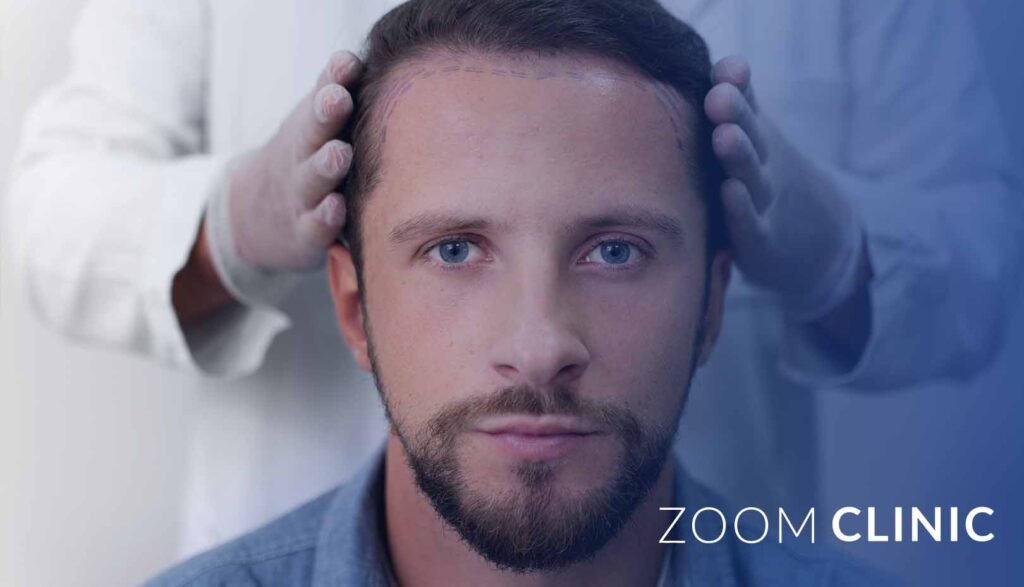
Ideal Candidates
Ideal candidates for hair transplant surgery include:
- Individuals with significant hair loss due to male pattern baldness or other types of alopecia.
- Those with sufficient donor hair in the back or sides of the scalp.
- Individuals with realistic expectations about the results.
Factors to Consider
- Age: While hair transplants can be performed at any age, younger patients should consider the potential for future hair loss.
- Hair Type: The texture and density of your hair can impact the procedure’s outcome.
- Health: Good overall health minimizes risks and ensures proper healing.
What Can I Expect During Recovery?
Post-Operative Care
After the hair transplant procedure, you can expect:
- Mild Discomfort: Pain relief medication may be prescribed to manage discomfort.
- Swelling: Some swelling in the scalp area is normal and should subside within a few days.
- Scabbing and Redness: Scabbing around the transplanted follicles is common and typically resolves within a week.
- Itching: An itchy scalp is a normal healing process but should not be scratched.
Healing Process
- First Few Days: Avoid strenuous activities, and follow the surgeon’s instructions for washing and caring for your scalp.
- First Few Weeks: Transplanted hair may fall out, but this is temporary. New hair growth typically begins within three to four months.
- Long-Term Results: Full results can take up to a year to become apparent, with continued hair growth and improvement in hair density.
How Much Does a Hair Transplant Cost?
Factors Influencing Cost
The cost of a hair transplant can vary based on several factors:
- Extent of Hair Loss: The required grafts will significantly impact the cost.
- Technique Used: FUT is generally less expensive than FUE due to the difference in labor intensity.
- Surgeon’s Experience: Highly experienced and reputable surgeons may charge more for their expertise.
- Location: Prices can vary between regions and countries.
Average Cost
On average, hair transplant costs can range from $4,000 to $15,000, depending on the abovementioned factors. It’s important to have a detailed consultation with your surgeon to get an accurate estimate based on your needs.
Are Hair Transplants Permanent?
Longevity of Results
Hair transplants are considered a permanent solution for hair loss. The transplanted hair follicles retain their genetic resistance to balding and grow in their new location.
Maintenance
While the transplanted hair is permanent, it’s essential to maintain overall hair health through proper care, a healthy lifestyle, and potentially other hair loss treatments to support existing hair.
What Are the Risks and Complications?
Potential Risks
As with any surgical procedure, hair transplants come with inherent risks, including:
- Infection: Proper post-operative care and hygiene can minimize this risk.
- Scarring: FUT may leave a linear scar, while FUE produces tiny dot scars.
- Uneven Growth: There is a possibility of uneven hair growth, which can be corrected with additional procedures.
How to Minimize Risks
Choosing an experienced hair transplant surgeon and following all pre-and post-operative instructions can significantly reduce the risk of complications.
How Do I Choose a Hair Transplant Surgeon?

Qualities to Look For
When selecting a hair transplant surgeon, consider the following:
- Experience: Look for surgeons with extensive experience and specialization in hair transplantation.
- Credentials: Ensure the surgeon is board-certified in plastic surgery or dermatology.
- Reputation: Read reviews, testimonials, and before-and-after photos of previous patients.
- Consultation: A thorough initial consultation is crucial for discussing your goals and expectations.
Questions to Ask
- How many hair transplant procedures have you performed?
- Can I see before-and-after photos of previous patients?
- What technique do you recommend for my hair loss pattern?
- What are the potential risks, and how do you handle complications?
What Results Can I Expect?
Immediate Results
Immediately after the procedure, the transplanted area may appear slightly red and swollen. This is normal and subsides within a few days.
Long-Term Results
- 3-4 Months: New hair growth typically begins.
- 6-9 Months: Significant improvement in hair density and appearance.
- 12 Months: Full results with natural-looking hair growth.
Maintenance and Care
Maintaining the health of your transplanted and existing hair through proper care, a healthy diet, and avoiding harmful practices is essential for long-term success.
Additional FAQs
Can women undergo hair transplant surgery?
Women experiencing hair loss due to conditions like alopecia or thinning hair can undergo hair transplant surgery. The same techniques used for men apply to women, though the approach may be tailored to address specific female hair loss patterns.
How many grafts will I need?
The number of grafts required depends on the extent of your hair loss and your desired density. Your hair transplant surgeon will provide an estimate during your initial consultation based on your individual needs.
Will my hair transplant look natural?
Hair transplants can achieve natural-looking results with advanced techniques like FUE and FUT. The precision in placing individual hair follicles ensures a natural hairline and overall appearance.
Can I cut and style my transplanted hair?
Once the transplanted hair has matured, you can cut, style, and treat it like natural hair. It will blend seamlessly with your existing hair, allowing you to maintain your preferred hairstyle.
How soon can I return to work after a hair transplant?
Most patients can return to work within a few days to a week after the procedure, depending on the extent of the surgery and their comfort level. Your surgeon will provide specific recommendations based on your recovery progress.
Is hair transplant surgery painful?
The procedure is performed under local anesthesia, ensuring a pain-free experience during surgery. Post-operative discomfort can be managed with prescribed pain relief medications.
Will I need a second hair transplant?
Sometimes, a second hair transplant may be necessary to achieve the desired density or address future hair loss. Your surgeon will discuss the potential need for additional procedures based on your hair restoration goals.
What is donor dominance?
Donor dominance refers to the concept that hair follicles transplanted from the donor area (typically the back or sides of the scalp) retain their genetic resistance to balding. This ensures that the transplanted hair continues to grow in the recipient area.
Can I undergo a hair transplant if I have high blood pressure?
Yes, but you must inform your surgeon about your medical condition and any medications you are taking. Your surgeon will take necessary precautions to ensure your safety during the procedure.
How do I prepare for a hair transplant?
Your surgeon will provide specific instructions for preparing for the procedure. This may include avoiding certain medications, quitting smoking, and arranging for post-operative care. Proper preparation helps ensure a smooth surgery and optimal results.
What is the difference between hair plugs and modern hair transplants?
Hair plugs are an older technique that involves transplanting large clumps of hair, often resulting in an unnatural appearance. Modern hair transplants like FUE and FUT involve transplanting individual hair follicles for a more natural look and better overall results.
Is a hair transplant worth it?
For many people experiencing hair loss, a hair transplant can significantly improve self-esteem and overall appearance. The long-lasting results and natural-looking hair growth make it a worthwhile investment for those seeking a permanent solution to hair loss.
photos of Zoom Clinic clients before and after hair transplantation
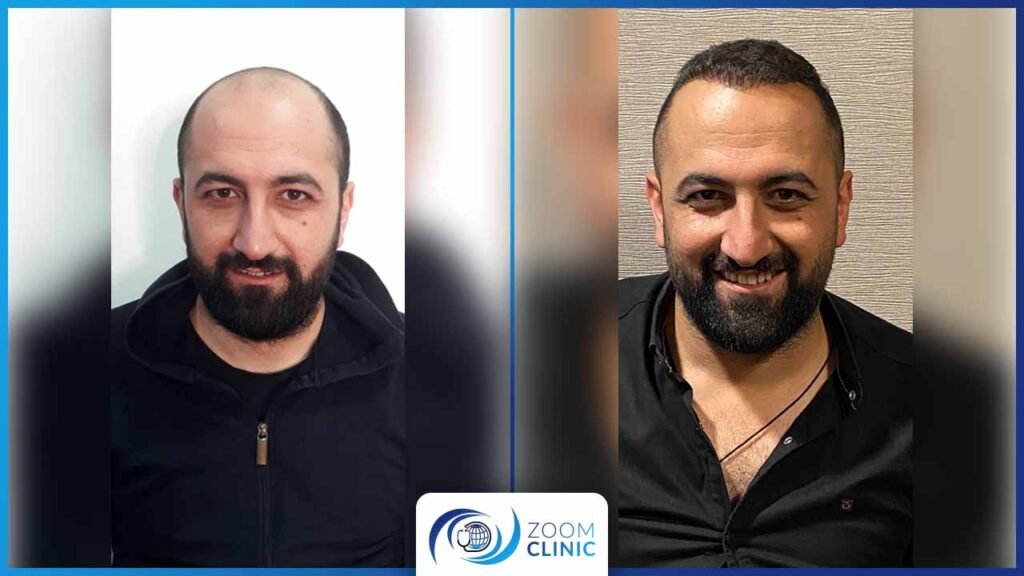
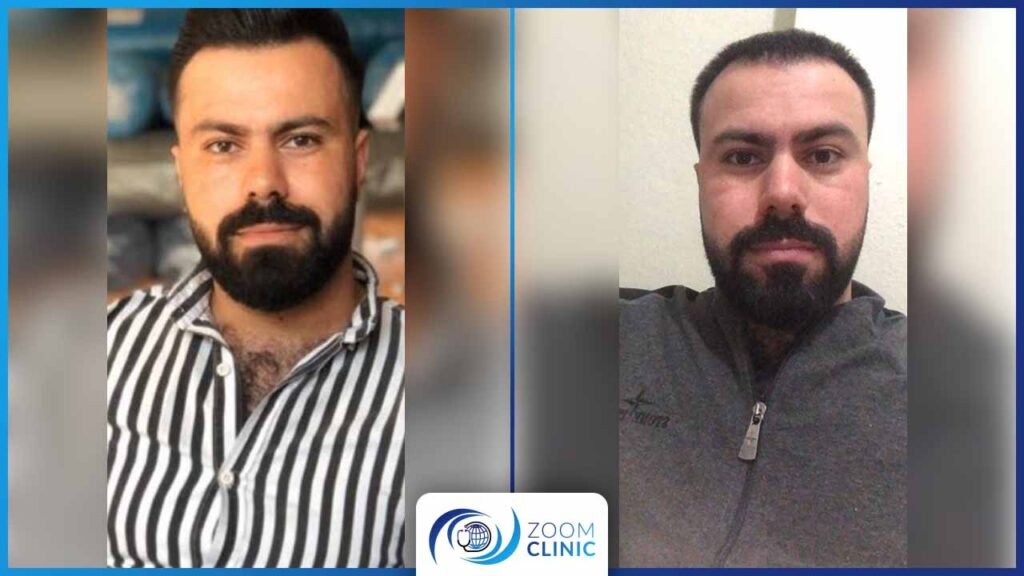

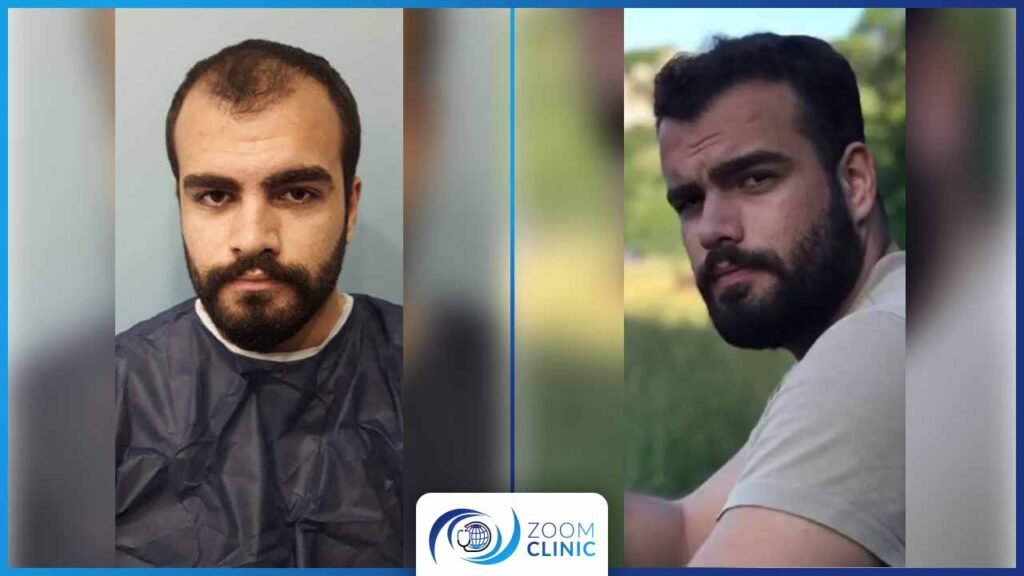
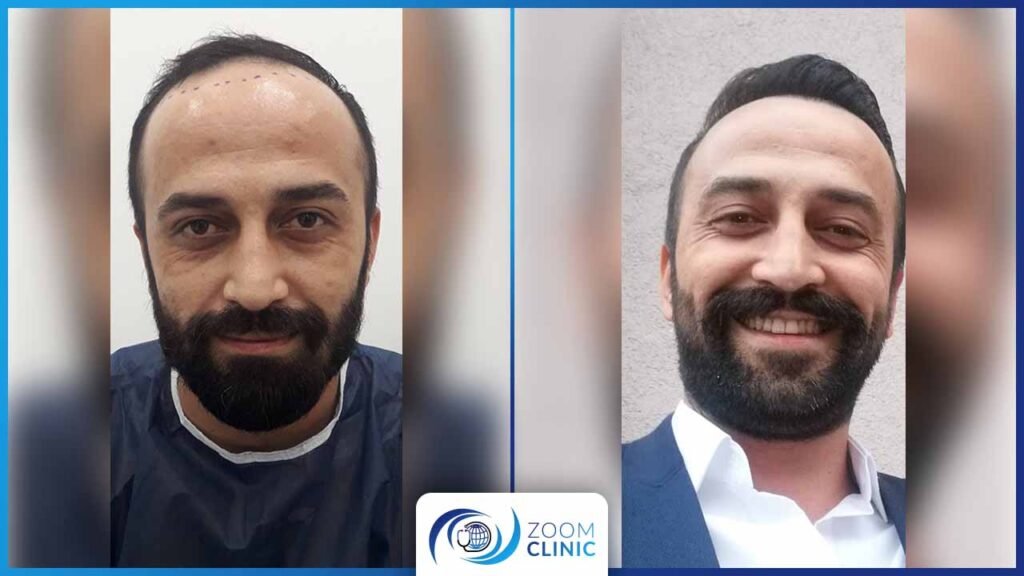
Conclusion
hair transplant surgery offers a viable and effective solution for those struggling with hair loss. By understanding the procedure, recovery, costs, and expected results, you can make an informed decision about pursuing hair restoration.
Consulting with an experienced hair transplant surgeon and addressing any concerns through a thorough initial consultation will help ensure a successful outcome and renewed confidence in your appearance.
Get the special offer today from Zoom Clinic
Related Articles:
Hair Transplantation in Turkey: A Global Leader in Aesthetics
From Consultation to Completion: Your Hair Transplant Journey


